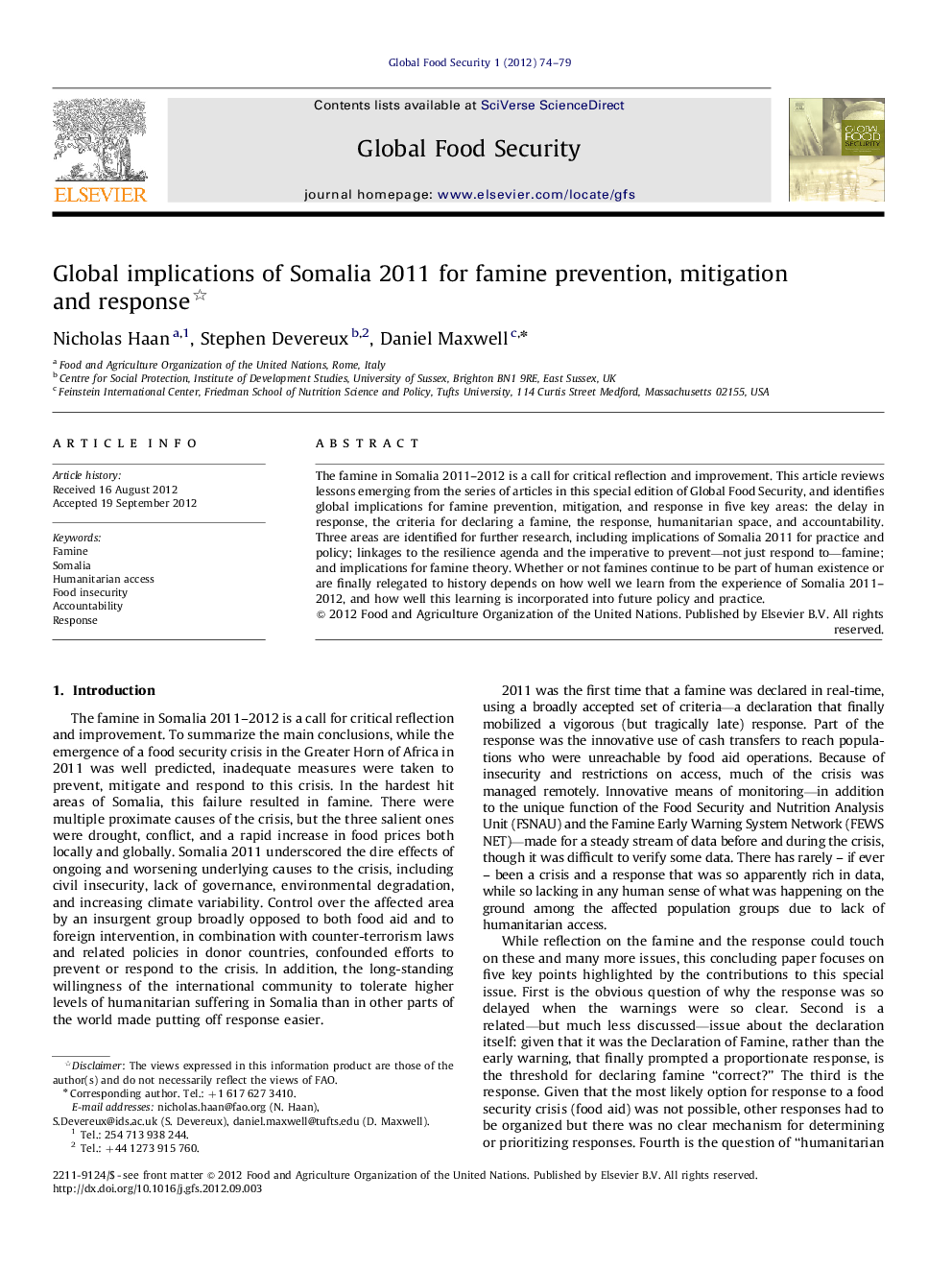| Article ID | Journal | Published Year | Pages | File Type |
|---|---|---|---|---|
| 1047625 | Global Food Security | 2012 | 6 Pages |
The famine in Somalia 2011–2012 is a call for critical reflection and improvement. This article reviews lessons emerging from the series of articles in this special edition of Global Food Security, and identifies global implications for famine prevention, mitigation, and response in five key areas: the delay in response, the criteria for declaring a famine, the response, humanitarian space, and accountability. Three areas are identified for further research, including implications of Somalia 2011 for practice and policy; linkages to the resilience agenda and the imperative to prevent—not just respond to—famine; and implications for famine theory. Whether or not famines continue to be part of human existence or are finally relegated to history depends on how well we learn from the experience of Somalia 2011–2012, and how well this learning is incorporated into future policy and practice.
Highlight► We summarize main conclusions from the special issue articles on the 2011 Somalia famine. ► We summarize main proximate and underlying causes of the Somalia famine. ► We examine the delayed response, criteria for declaring famine, and the response itself. ► We analyze humanitarian space, accountability, and implications for policy and practice. ► We examine the implications for resilience, and for prevention of future famines.
